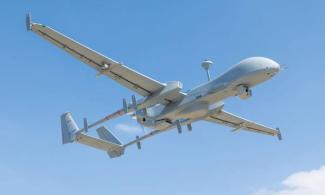
The exact death toll, and the number of people injured in the attack, for which no one has yet officially claimed responsibility, is not currently known.
An Israeli drone strike on Hamas office in Beirut, Lebanon, has killed four people including the group's deputy political leader.
Lebanon's National News Agency, NNA, said that some other people were also injured when the Hamas office was targeted in Dahiyeh, a stronghold of the Iran-backed Hezbollah.
“Four people were martyred and a number of others injured when the Hamas office was targeted,” in Dahiyeh, an area in Beirut's southern suburbs and a stronghold of the Iran-backed Hezbollah, Lebanon's National News Agency (NNA) said.
Video footage of the aftermath of the strike shows a large fire burning on a nearby street, which is covered in dust and rubble. Sirens can be heard wailing, and several cars can be seen with their windows broken in.
Parents were seen holding their children tightly as they navigated the destroyed suburb.
According to Mail Online, sources claimed that top Hamas official Saleh al-Arouri, one of the founders of Hamas' military wing, was killed in the blast.
The exact death toll, and the number of people injured in the attack, for which no one has yet officially claimed responsibility, is not currently known.
Israeli prime minister Benjamin Netanyahu said at a press conference in November that he had 'instructed the Mossad to act against the heads of Hamas wherever they are,' following the terror group's incursion on October 7 that left 1,200 people, mostly civilians, dead.
al-Arouri, 57, was the deputy head of Hamas' political bureau, and was considered the de facto leader of the organisation's military wing.
The explosion came during more than two months of heavy exchanges of fire between Israeli troops and members of Hezbollah along Lebanon's southern border.
Since the fighting began the day after Black Saturday, conflict has been concentrated a few miles from the border but on several occasions Israel's air force hit Hezbollah targets deeper in Lebanon.
Earlier in the day, Hezbollah said its fighters carried out several attacks along the Lebanon-Israel border targeting Israeli military posts.
Clashes on the Israel-Lebanon border have already displaced tens of thousands of people, despite previous claims from Israel that it did not want to wage war with its neighbour.
But just last month, senior member of Benjamin Netanyahu's war cabinet Benny Gantz said that the situation on Israel's border with Lebanon 'must change', hinting at an escalation with Hezbollah.
In November, Israel’s minister for defence Yoav Gallant said, referring to Hezbollah's secretary general, Hassan Nasrallah: “If you hear that we have attacked Beirut, you will understand that Nasrallah has crossed that line.”